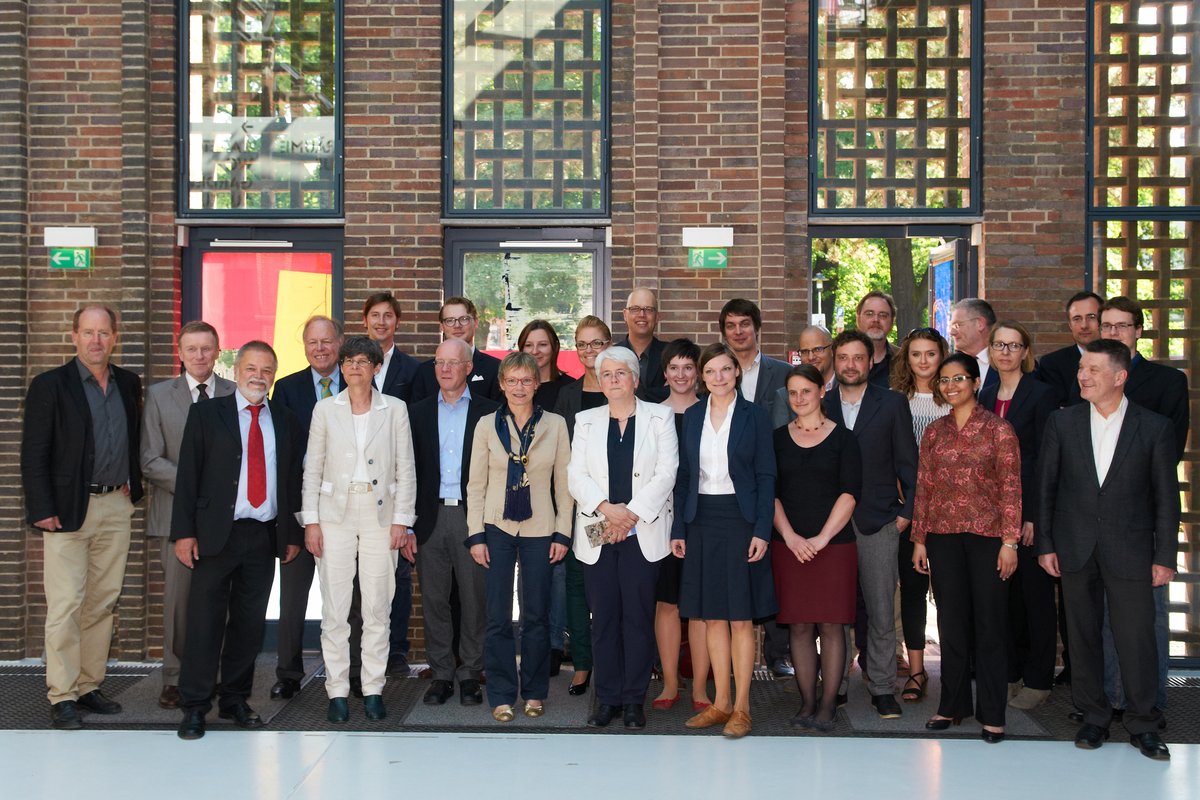Official opening of the first Research Training Group (DFG-Graduiertenkolleg) at the BTU Cottbus-Senftenberg
With a ceremony at the Kunstmuseum Dieselkraftwerk attended by the Secretary of State Brandenburg for Science, Research and Culture, Prof. Dr.-Ing. Dr. Sabine Kunst, the first Research Training Group at BTU Cottbus-Senftenberg was launched on May 20 2014. The aim of the Research Training Group, which has DFG funding of approximately 3.8 million € for 4.5 years, is to analyse the tension between art, technology and society in different times and cultures. It is based on individual studies on structures and the processes of their emergence and transformation from antiquity to the 20th century in Europe as well as in the Middle East and East Asia. Ten PhD-students, two postdoctoral researchers and a Mercator Fellow are involved in the Research Training Group. Renowned researchers and research institutes from the field of Humanities and Engineering are cooperative partners of the Research Training Group. A second funding period for the Research Training Group can be obtained through successful evaluation in 2018.
The keynote speakers emphasized that there could not be a better place in Cottbus than the former diesel power plant and today's art museum to demonstrate the goals of the graduate school, given the building’s status as a cultural centre and outstanding technical monument. The deputy director of the Kunstmuseum Dieselkraftwerk, Carmen Schliebe discussed the special historical and cultural significance of the building, the institution and its collections. In her address the Secretary of State Prof. Kunst stressed the importance of the Research Training Group for the future development of the university and thanked the applicants for their efforts. Dr. Birger Hendriks, representative of the newly established BTU Cottbus-Senftenberg, pointed to the excellent research carried out by the researchers on the programme during the last years. Acquiring funding for a longer period would provide a good opportunity for the continuation of this excellent research at BTU-Cottbus-Senftenberg and is therefore of particular importance for the further development of the university.
Prof. Dr.-Ing. Klaus Rheidt, speaker of the Research Training Group, explained the research concept, which is at the interface between art, technology and society. He particularly emphasized the interdisciplinary character of the Group by citing the statement of the DFG reviewers: “At the heart of the Graduate School ... is the link between two scientific worlds, cultural sciences and engineering sciences". This dialogue, which will also be reflected in the future publications of the Research Training Group, would be particularly important for the success of this scientific endeavour. Apart from regular interdisciplinary colloquia, there are two postdoctoral positions, each of which deals with a scientific question from a common perspective as a 'tandem' of intellectual scientists and engineers. He also presented the vision of a Cultural Heritage Centre at the BTU Cottbus-Senftenberg. Building on the graduate programme and the worldwide research projects of the academics involved, would allow the BTU Cottbus-Senftenberg, as a small, specialised and involved technical university, to maintain its distinctive and unique character as well as its international visibility.
In her keynote address, Prof. Dr. Friederike Fless, president of the German Archaeological Institute in Berlin (DAI), took a closer look at the different perceptions of the cityscapes in ancient and contemporary times by comparing the borders of Rome with those of Berlin. Both were characterized by walls, which even after they had lost their function, were still perceived and evaluated differently. The German Archaeological Institute is one of the most important partners of the Research Training Group together with the Leibniz Institute for Regional Development and Structural Planning in Erkner (IRS) and the Winckelmann Institute for Archaeology at Humboldt-University Berlin.
Members of the Philharmonic Orchestra at the State Theatre Cottbus musically accompanied this event. Antje Gräupner (harp) and Nikola Götzinger (violincello) performed works by Felix Mendelssohn Bartholdy and Ralph Vaughan Williams.

